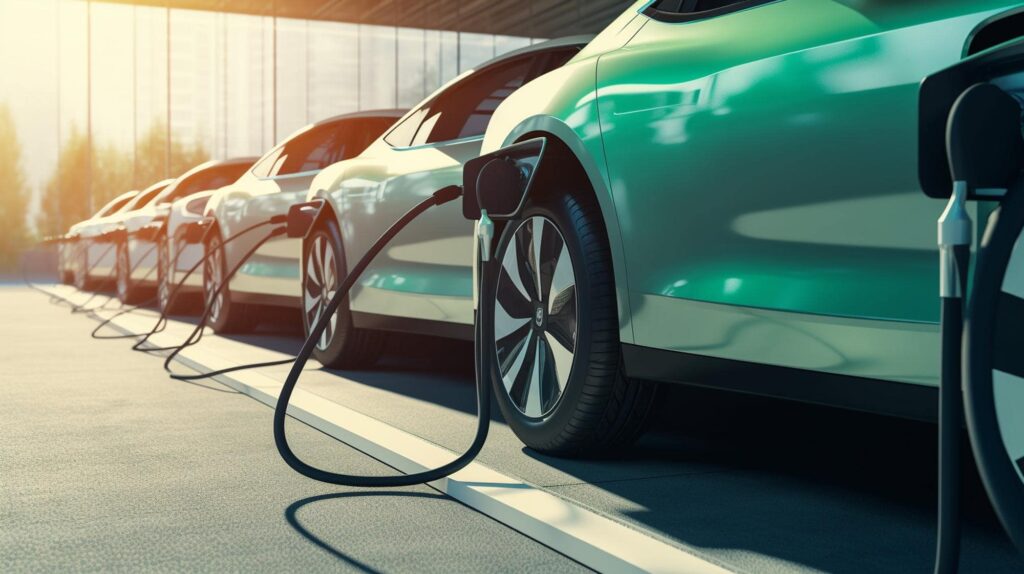Auto Dealers Intensify Fight Against EV Sales Requirements

Table of Contents
Economic Concerns Fuel Dealer Opposition to EV Mandates
The core of the dealers' opposition lies in the significant economic burdens imposed by EV sales requirements. These mandates create numerous financial challenges for dealerships, particularly those in regions with lower EV demand.
High Upfront Costs of EV Inventory
Dealerships face substantial upfront investment challenges when stocking EVs. The higher initial purchase price of EVs compared to gasoline-powered vehicles creates a significant financial hurdle.
- Higher purchase price for EVs: EVs, especially those with advanced features, often command significantly higher prices than comparable gasoline vehicles. This reduces profit margins per unit, especially in the initial stages of EV adoption.
- Need for specialized charging infrastructure investment: Dealerships must invest in expensive charging infrastructure to support EV sales and service. This includes the purchase and installation of charging stations, along with the necessary electrical upgrades to handle the increased power demand.
- Potential for lower profit margins on EVs initially: Due to higher acquisition costs and the need for infrastructure investment, the profit margins on EV sales may be lower than those on gasoline vehicles, at least in the short term.
Lack of Consumer Demand in Certain Markets
The demand for EVs is far from uniform across geographical regions. This poses a particular challenge for smaller dealerships in areas with lower EV adoption rates.
- Regional variations in EV demand: Consumer adoption of EVs varies significantly based on factors like electricity prices, access to charging infrastructure, and consumer awareness. Rural areas and regions with less emphasis on environmental sustainability often lag behind urban areas.
- Challenges in marketing and selling EVs in less environmentally conscious areas: Convincing consumers in areas with lower EV adoption rates requires targeted marketing strategies and overcoming potential skepticism or lack of awareness about EV benefits.
- Lack of government incentives in some regions: The absence of government incentives, such as tax credits or rebates, in some regions further diminishes the appeal of EVs for both consumers and dealerships.
Training and Expertise Requirements
The complexities of EV technology demand specialized training for sales staff and mechanics. This adds another layer of financial strain on dealerships.
- Costs associated with employee training: Dealerships need to invest in training programs for their staff to acquire the necessary knowledge and skills to effectively sell and service EVs.
- Potential labor shortages of EV-trained technicians: A shortage of technicians trained to work on EVs could lead to increased labor costs and longer service times.
- Ongoing investment in training materials: Keeping up with the rapid technological advancements in the EV sector requires ongoing investment in updated training materials and programs.
Legislative Challenges and Dealer Lobbying Efforts
The fight against EV mandates extends beyond the financial realm into the political and legal arenas. Dealers and their associations are actively engaging in lobbying efforts to influence policy.
State-Level Resistance to Federal Mandates
Several state governments are actively challenging federal EV sales quotas, leading to legal battles that complicate and delay the transition.
- Examples of states challenging mandates: Certain states have actively challenged or attempted to block the implementation of federal EV mandates through legislative action or legal challenges.
- Legal challenges to the authority of imposing quotas: The legal basis for imposing mandatory EV sales quotas is being challenged in some jurisdictions, leading to ongoing legal uncertainty.
- Potential for legal battles impacting EV adoption timelines: These legal battles are likely to prolong the timeline for achieving national EV adoption targets.
Dealer Associations' Role in Shaping Policy
Powerful auto dealer associations are actively lobbying to influence or even overturn EV mandates.
- Lobbying strategies employed by dealer groups: These groups utilize various lobbying strategies, including direct engagement with lawmakers, public relations campaigns, and coalition building.
- Political donations and contributions: Significant financial contributions to political campaigns influence legislative agendas and shape policy outcomes.
- Alliances with other industry groups opposing stringent regulations: Dealer associations often form alliances with other industry groups that share similar concerns about regulatory burdens.
Public Relations Campaigns and Consumer Sentiment
Dealers are employing public relations strategies to shape public opinion about EVs and the mandates themselves.
- Counter-arguments used by dealers: Dealers often emphasize the economic challenges, consumer choice, and potential drawbacks of EVs.
- Emphasis on consumer choice: The argument that consumers should have the freedom to choose between gasoline and electric vehicles is a prominent theme in dealer PR campaigns.
- Potential misinformation campaigns related to EV technology or infrastructure: In some cases, concerns have been raised about the potential for misinformation campaigns aimed at discrediting EVs or exaggerating their limitations.
The Future of EV Sales and the Dealer-Manufacturer Relationship
The conflict over EV mandates has significant long-term implications for the entire auto industry.
Impact on EV Adoption Rates
Dealer resistance could significantly slow down the transition to electric vehicles.
- Potential delays in achieving emission reduction goals: Slower EV adoption rates could delay the achievement of crucial emission reduction targets.
- Impact on consumer access to EVs: Reduced availability of EVs due to dealer resistance could limit consumer access to this technology.
- Implications for the overall growth of the EV market: The overall growth trajectory of the EV market could be significantly impacted by these delays.
Evolving Relationship Between Dealers and Manufacturers
Manufacturers are adapting to dealer resistance, exploring alternative sales models and potentially altering the dealer-manufacturer relationship.
- Direct-to-consumer sales models: Manufacturers may increasingly explore direct-to-consumer sales models to bypass dealer resistance.
- Changes in dealer franchise agreements: Franchise agreements may be revised to incentivize EV sales or impose penalties for non-compliance with EV sales targets.
- Increased pressure on dealers to meet EV sales targets: Manufacturers will likely increase pressure on dealers to meet EV sales targets, potentially leading to further conflict.
Government Response and Policy Adjustments
Governments may need to adjust their policies in response to dealer opposition, finding a balance between environmental goals and economic realities.
- Potential revisions to EV mandates: Governments might adjust the timelines or targets for EV mandates to account for dealer concerns.
- Increased incentives for EV adoption: Enhanced incentives could help stimulate consumer demand and alleviate some of the economic pressure on dealers.
- Exploration of alternative regulatory approaches: Alternative approaches might include a combination of mandates and incentives, or a focus on supporting the development of EV charging infrastructure.
Conclusion
The conflict between auto dealers and regulators over EV sales requirements is an ongoing and complex issue. Dealers' economic concerns and legislative challenges are undeniably significant, and these concerns are impacting the speed of EV adoption. However, the transition to electric vehicles is ultimately inevitable, driven by environmental necessities and technological advancements. Finding a balance between fostering EV adoption and addressing the valid concerns of auto dealers is critical for a smooth and successful transition to a sustainable transportation future. Staying informed about the latest developments regarding EV sales requirements and the resistance from auto dealers is crucial for all stakeholders.

Featured Posts
-
 Federal Charges Filed In Office365 Executive Email Theft Case
May 22, 2025
Federal Charges Filed In Office365 Executive Email Theft Case
May 22, 2025 -
 Saskatchewan And The Federal Election A Political Panel Discussion
May 22, 2025
Saskatchewan And The Federal Election A Political Panel Discussion
May 22, 2025 -
 Latest On Jeremie Frimpong Transfer Agreed Liverpool Contact Pending
May 22, 2025
Latest On Jeremie Frimpong Transfer Agreed Liverpool Contact Pending
May 22, 2025 -
 20 Cent Gas Price Hike Impact On Drivers Nationwide
May 22, 2025
20 Cent Gas Price Hike Impact On Drivers Nationwide
May 22, 2025 -
 Racial Hatred Tweet Former Tory Councillors Wifes Appeal Delayed
May 22, 2025
Racial Hatred Tweet Former Tory Councillors Wifes Appeal Delayed
May 22, 2025
